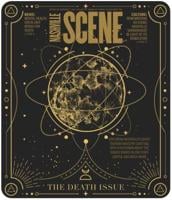A piece of legislation could prevent Nashville from restricting the use of license plate reader technology by the Metro Nashville Police Department. As introduced, the bill would simply extend the length of time government entities can store LPR data from 90 days — the current limit under state law — to 100 days. But an amendment obtained by the Scene would rewrite the bill to include a provision preempting local regulation of criminal justice technology.
As defined in the bill, “criminal justice technology” includes a laundry list of tools that law enforcement agencies use to detect and prevent crime. LPRs are on that list, along with other controversial technologies like facial recognition systems and drones.
This is common practice at the state legislature — a so-called “caption bill” is introduced as a placeholder of sorts, but amendments are later filed to rewrite the bill. These amendments — which are not typically posted on the general assembly’s website until after they’ve been considered in committee — can result in bills that bear little resemblance to the caption text, as is the case with SB1999.
If the bill passes with the amendment as currently written, it could seriously undermine some Metro Councilmembers’ efforts to tighten local restrictions on LPRs before MNPD implements an LPR program. The relevant section of the amendment, read broadly, could supersede nearly all efforts by a local government entity to regulate criminal justice technology. “Except as otherwise expressly permitted by state law,” the amendment reads, “the state preempts the entire field of determining the appropriate use of criminal justice technology.” Local governments would be prevented from enacting regulations to “prohibit or effectively prohibit” the use of criminal justice technology, including LPRs. And any existing local regulation or policy inconsistent with the state law would be voided.
Metro Councilmember At-Large Bob Mendes, a major opponent of LPRs who has sponsored several LPR-related bills currently being considered by the Council, reviewed the amendment. “My initial read, subject to talking to Metro’s lawyers,” Mendes says in a statement to the Scene, “is that this would be total deregulation of LPRs. It reads like it would preempt Nashville from having any rules about LPRs. I hope that’s not the case.”
District 35 CM Dave Rosenberg, who led the charge to limit Metro’s use of surveillance technology in a 2017 Metro Council bill, says the bill is indicative of a “brand of big government” that removes local control over issues with important local implications. “Some in the state legislature,” Rosenberg says, “appear to be taking a position for increased government surveillance and against communities having the flexibility to enhance public safety in ways that would best address their own local challenges.”
District 26 Councilmember Courtney Johnston, who championed the Metro Council legislation authorizing Metro agencies to use LPRs and setting up a regulatory framework for their use, told the Scene Monday evening that she had not spoken with state legislators about the bill. The sponsors of the bill, state Rep. Michael Curcio (HB2586) and state Sen. Mike Bell (SB1999), could not immediately be reached for comment.
The Senate Judiciary Committee will consider the Senate version of the bill, SB1999, on Tuesday. The House Criminal Justice Subcommittee is set to consider the House version, HB2586, the following day.





